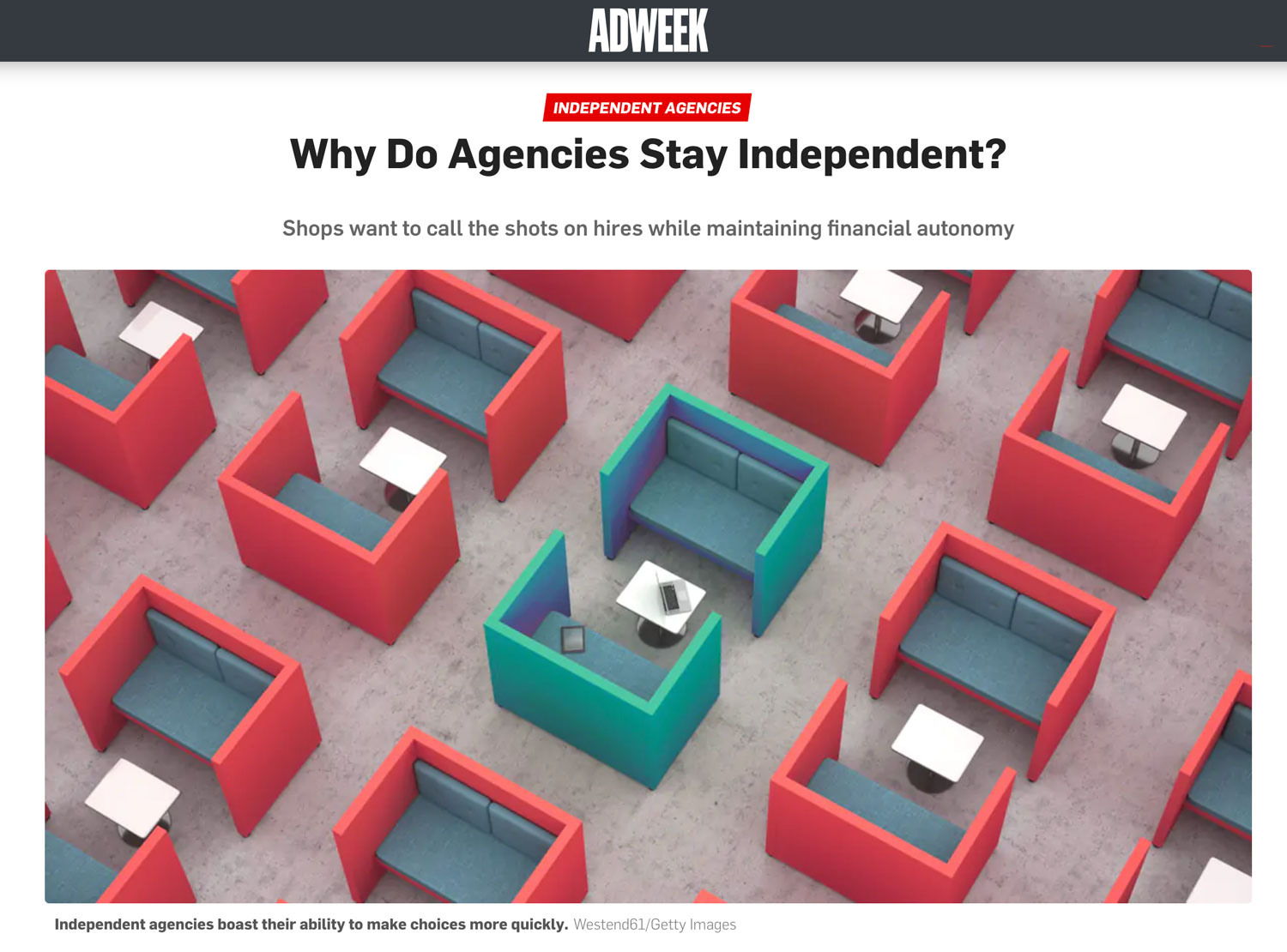Why Do Agencies Stay Independent?
Shops want to call the shots on hires while maintaining financial autonomy
Jolene Delisle doesnʼt have a problem saying no to new clients. As the founder and head of creative at branding agency The Working Assembly, she has gladly turned down work from big pharmaceutical companies and brands with values at odds with her own. According to Delisle, that professional freedom is a testament to the power of independence.
“We try not to work with clients that are potentially problematic and divisive,” said Delisle, who has done work for brands like Klarna and The Museum of Ice Cream. “Weʼve gotten offers to get acquired, but weʼre able to make choices that donʼt always make sense on paper and arenʼt always financially driven. I could also risk losing my people if I take certain projects on.”
Amidst pressure across the ad industry to become another shop under the big six holding companies, independent agency leaders are remaining confident in their statuses as individual entities. The benefits of working under a holding company are clear, including more credibility among clients, lower rates on benefits like health insurance and access to streamlined resources.
But shops want the freedom to make their own choices, hire on their own accord and nix the age-old structures that donʼt serve them. Independent agencies can often offer more white-glove experiences for clients, maintain healthier work-life balances and make nimble choices without having to sit through rounds of approval. They also donʼt feel their value is dependent on their cash flow.
When Karl Lieberman was a young creative at a much bigger agency, the shopʼs stock price for the day was displayed on a screen in its office. According to Lieberman, this type of pressure is not conducive to creativity. Luckily, he is now the chief creative officer at Wieden+Kennedy, and Dan Wieden has always stressed that “independence is everything to this place.”





